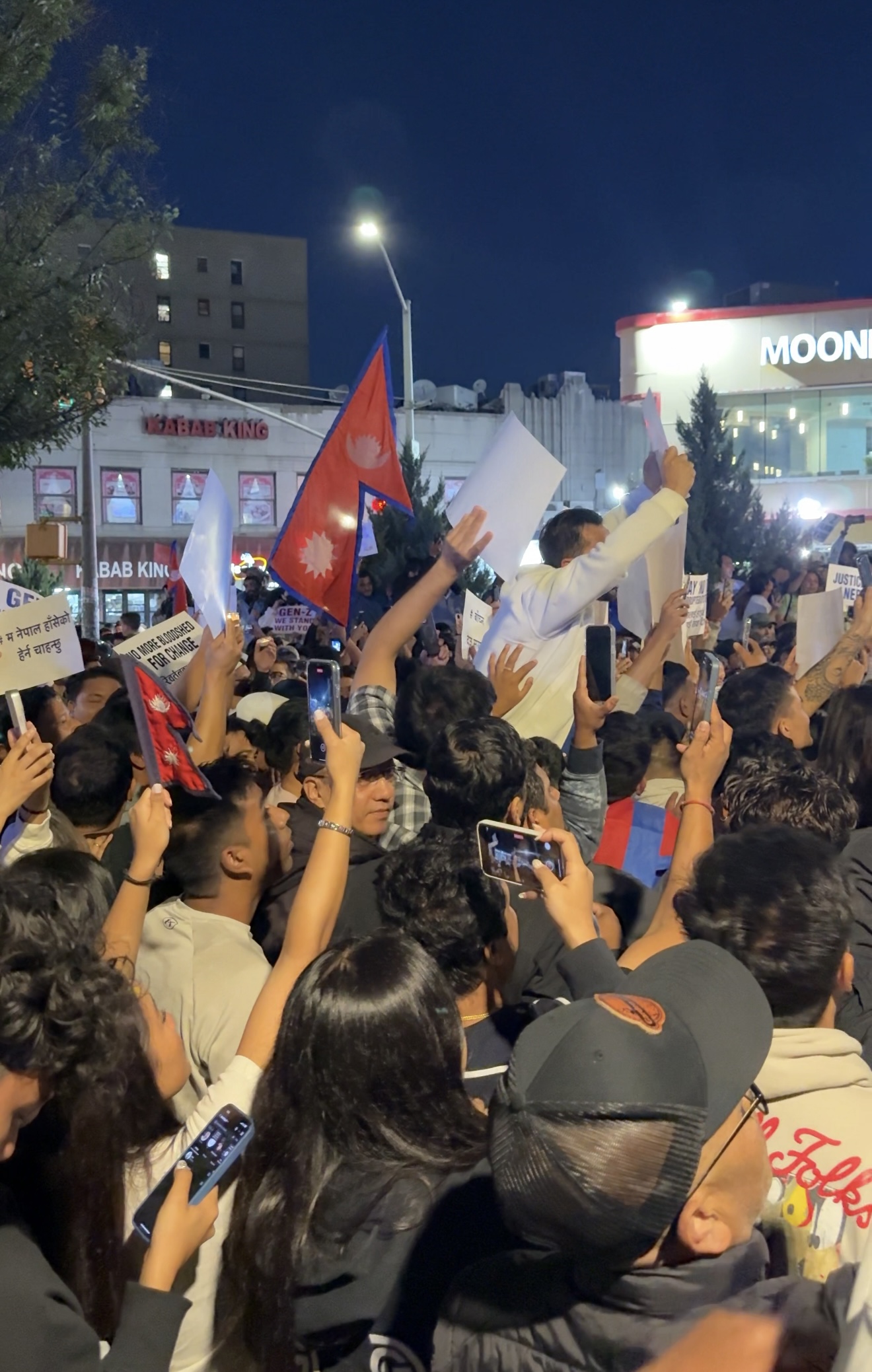Nepali immigrants are being cautioned against protesting in the U.S. amid rising fears of deportation
New York City, September 16, 2025 — In a video that has sparked widespread discussion across Nepali-American social media circles, community figure Gurme Sherpa has issued a firm warning to Nepali immigrants in the United States: avoid organizing protests about Nepal’s political crisis on American soil, or risk undermining the fragile legal protections many depend on.
Speaking in Nepali, Sherpa emphasized that while emotional ties to Nepal remain strong, the legal obligations of living in the United States must take precedence. “If you’ve become an American citizen, you’ve sworn to uphold the laws of this country,” he said. “If you love Nepal so much, go back and protest there. Don’t do it here—it could create problems for Nepali-born citizens living in the U.S.”
Sherpa’s message comes amid a wave of youth-led protests in Nepal, known as the Gen Z movement, which erupted after the government banned over two dozen social media platforms and was accused of widespread corruption. The protests led to the resignation of Prime Minister K.P. Sharma Oli and the appointment of Sushila Karki as interim leader.
Legal Tensions in the U.S.
Sherpa’s warning is especially timely given the precarious status of Nepali immigrants under Temporary Protected Status (TPS). The U.S. Department of Homeland Security has proposed terminating TPS for over 7,200 Nepalis, effective August 5, 2025. New York City has joined a coalition of 13 local governments in filing an amicus brief to delay the termination, arguing that ending TPS would destabilize families and communities.
Beyond TPS, Sherpa’s video raises concerns for Nepalis applying for green cards or U.S. citizenship. Immigration attorneys warn that any public activity perceived as disruptive—even if peaceful can be flagged during background checks or used to question an applicant’s “good moral character.” In today’s climate of heightened scrutiny, even symbolic protests may carry unintended consequences.
Community Support and Recent Deportations
Most of Sherpa’s followers appear to support his stance, citing recent deportations of Nepali nationals from Japan as a cautionary tale. According to reports from Nepal’s parliament, two Nepali citizens were deported from Japan for participating in protests related to Nepal’s Gen Z movement. Lawmakers have condemned the deportations as inhumane, noting that some individuals were returned in handcuffs and shackles.
Global Parallels: Anti-Immigrant Sentiment Rising
Sherpa’s concerns echo broader global trends. In Canada, anti-immigration sentiment has surged, with over 60 percent of respondents in a recent poll saying there are “too many immigrants,” a sharp rise from previous years. Indian and Sikh communities have faced racist attacks and online harassment, with some incidents classified as hate crimes by local police.
In London, diplomatic tensions between Canada and India have spilled into public discourse, leaving Indian immigrants feeling vulnerable. Community leaders report increased racism and travel-related anxieties, especially for families applying for visas or permanent residency. Far-right movements in the UK have also targeted immigrants under the banner of “border control,” further complicating the landscape.
Diaspora Debate: Activism vs. Legal Risk
The video has ignited a broader debate within the diaspora about the role of activism and the risks it may pose.
Many Nepali immigrants in the U.S. are navigating complex legal proceedings without representation. In New York alone, over 288 Nepali immigrants are currently facing immigration court without legal counsel a nine-year high. Advocates warn that any public action perceived as disruptive could be used against vulnerable individuals in court.
A Call for Strategic Advocacy
Sherpa’s message is not a rejection of solidarity, but a call for strategic caution. As protests continue in Nepal and diaspora communities seek ways to support reform, the challenge lies in crafting advocacy that uplifts Nepali voices without triggering legal backlash in host countries.
For now, the Nepali-American community remains divided some calling for bold action, others urging restraint. But all agree: the stakes have never been higher.

